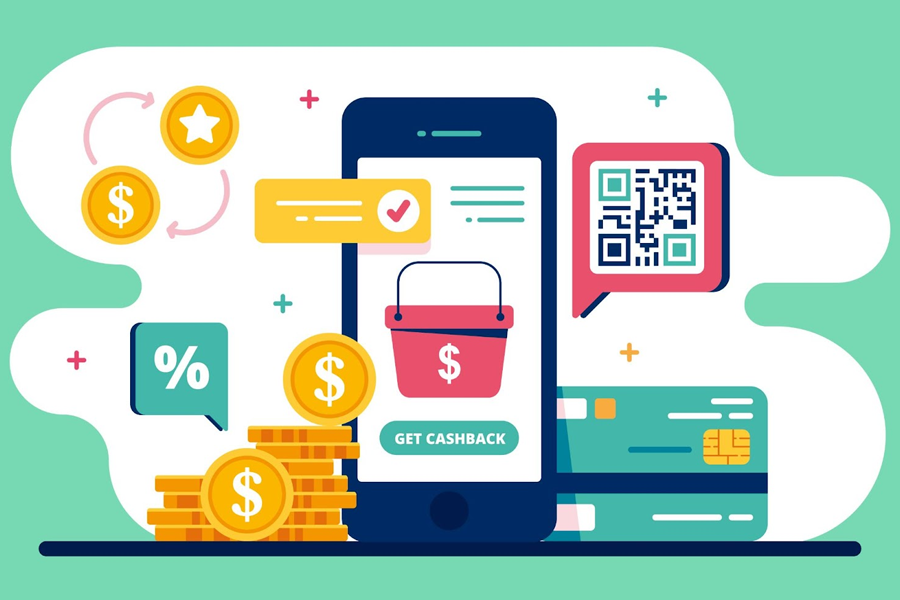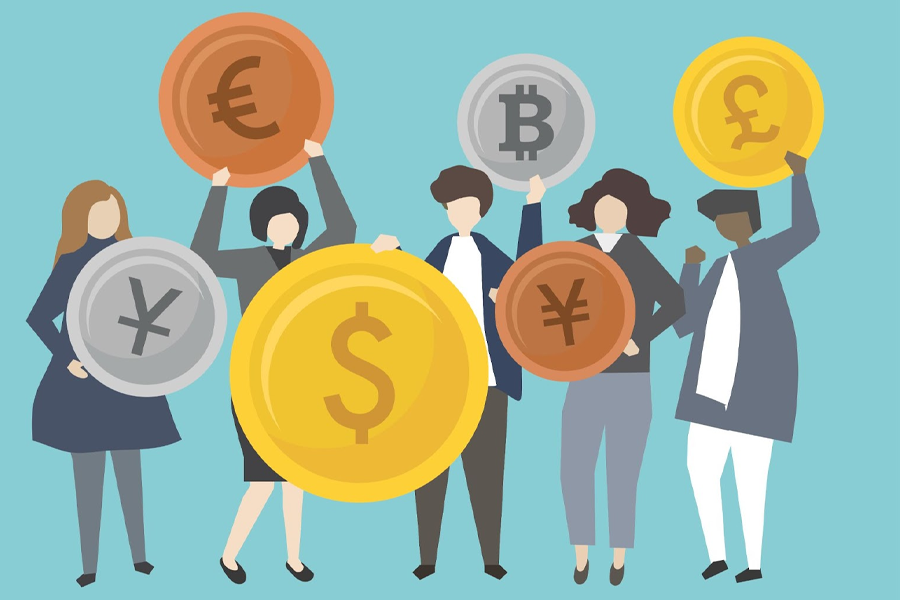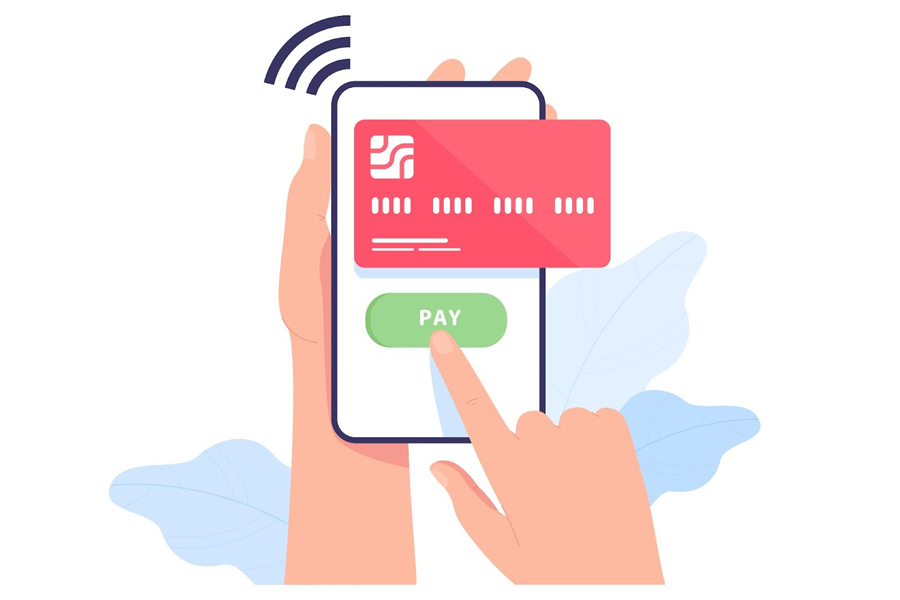
As a business owner or a budding entrepreneur in the realm of e-commerce, it is essential to optimize your online payment processing properly.
Your business’s payment gateway must meet all the requirements needed for a seamless integration for your business, and to provide a great customer experience.
In this article, you will learn how to choose the right payment gateway for your business and understand more its importance.
Let’s get started!
How Does a Payment Gateway Work?
A payment gateway is a technology that enables businesses to process card transactions or payments from their customers online.
Payment gateways are e-commerce payment solutions that shape the digital payment infrastructure of online purchasing or online business. Financial technology or fintech enables secure payment processing for your electronic funds.
This is how the payment gateway works:
- Customer purchase – The process starts when a customer purchases from your e-commerce platform. They choose a product and proceed to checkout.
- Payment information – Your customers will enter their payment details like credit cards, debit cards, or card-not-present transactions like digital wallets or bank transfers.
- Transmission and Encryption – When your customer’s payment information is entered, it is now encrypted using SSL or secure socket layer encryption or other encryption protocols out there to ensure online payment security or sensitive data.
- Authorization request – When the payment gateway receives the encrypted payment data, it will forward it to the payment processor services providers or acquiring banks. The payment processor will then verify the authenticity of the transfer or transaction and check the available funds or credit limits of the customer’s card or account.
- Transaction authorization – After doing fraud prevention measures and checking the payment details, the payment processor sends an authorization code or request to the customer’s bank or credit card association. The bank assesses the transactions and decides to approve or decline them.
- Back to the merchant – The bank then sends an authorization response back to the payment processor through the payment gateway. If the customer’s transaction is approved, the payment gateway brings this information to the merchant’s account or website allowing the purchase to proceed.
- Completion of transaction -Once the transaction is approved or authorized, the payment gateway notifies both the customer and the merchant of the successful payment. The funds are then transferred from the customer’s account to your account or the merchant’s account.
- Risk assessment and management – After everything is settled, the payment processor initiates the funds transfer from the acquiring bank to the merchant’s bank account. Moreover, the payment gateway will give payment reconciliation, and provide transaction reports for merchants to track and manage the customer’s payments.
Think of it this way – in person, this process is done through POS, or point-of-sale devices where customers swipe their cards to make payments. But for online transactions the virtual point of sale is called the payment gateway.
And would you believe that all of this process happens in just a few seconds? That’s how digitalized and fast online payment transactions are today, and is more convenient when selling online.
Understanding the Indonesian E-Commerce Landscape
Indonesia is also one of the Southeast Asian countries that boasts a rapid growth of the e-commerce market sector. With over 273 million population and rapid growth of the middle-class sector, the country emits a big potential for e-commerce businesses to thrive.
Since the internet penetration and digital landscape are evolving in the country, many businesses have switched to electronic payment methods. That;s how they offer a variety of mobile payment options to Indonesians since the majority of the residents are mobile phone users. Mobile-optimized e-commerce platforms are also growing in the country to cater to the bigger market of phone users.
Indonesian consumers come from both urban and rural areas and have different tastes, ways of making purchases, and degrees of digital literacy. Success in the industry requires e-commerce tactics to be generally tailored to the varied demands and preferences of Indonesian consumers.
Just like in other SEA or Southeast Asian countries like the Philippines, Indonesia’s primary payment preferences for customers is still cash or cash-on-delivery. However, digital payment methods are gaining traction now more than ever. This is why most businesses now do online banking integration and digital wallet integration to cater to real-time payment processing for online business.
Driven by favorable market conditions, trends in digital adoption, and government assistance, the Indonesian e-commerce industry presents enormous prospects for growth and innovation.
Local vs. International Payment Gateways in Indonesia
When it comes to choosing your payment gateway for your business in Indonesia, you need to carefully consider the differences between local and international gateway providers.
Here are some factors to consider when choosing local payment gateways:
- Integrations: You need to make sure that the local payment gateway has online banking integration, digital wallet integration, or other seamless integration options that are matched to the Indonesian market. You need to choose those who have pre-built plugins and APIs designed solely for E-commerce platforms that are used in Indonesia.
- Solutions: Tailored solutions that can cater to local purchasing habits and cultural norms of Indonesian customers are also good to consider. Alternative payment methods aside from cards are important for the local market.
- Compliance: Since it is a local payment gateway, these are all well-versed in Indonesian regulations and compliance with online transactions, data protection, and financial services. Local payment gateways are most likely the ones updated on changes in regulatory requirements because they are updated with local news. This can help you avoid legal complications, and help promote trust to your customers.
Carefully evaluate these factors and decide if local payment gateways meet your business requirements and carefully analyze if they will provide a seamless payment experience for your customers.
Examples of local payment gateways in Indonesia are:
- Xendit;
- Espay;
- iPaymu;
- Faspay;
- Doku;
- Nicepay;
- Midtrans, and others.
On the other hand, some factors to consider when choosing international payment gateways in Indonesia are:
- Wide reach: International payment gateways offer a global reach and access to a broader market not just in Indonesia. With this, you can support transactions in many currencies and cater to customers worldwide.
- Brand Awareness: When you choose a well-known and international payment gateway you can instill trust and confidence in your customers, especially if your market is people who are familiar with these payment gateway brands. Familiarity with a payment gateway can alleviate the security concerns of your customers and gain confidence in their transactions with you.
- More advanced features: Usually, international payment gateways are a little more advanced than local payment gateways. Some of the advanced features include real-time payment processing, high-quality fraud detection mechanisms, and other reporting tools.
- Innovative Technology: International payment gateways usually make significant investments in research and development. They might launch cutting-edge solutions like contactless payments, mobile wallets, or support for cryptocurrencies, allowing retailers to provide their customers with state-of-the-art payment alternatives.
Examples of International payment gateway in Indonesia include:
- Paypal;
- 2checkout;
- Payop, and others.
The choice between local and international payment gateway is based on several important variables like cost-effectiveness, brand recognition, regulatory compliance, advanced functionality, global reach, integration options, and multi-currency compatibility. By carefully weighing the factors, you can make a sound decision that will promote the expansion of your e-commerce business in Indonesia.
Security and Fraud Prevention Measures
Security and fraud preventive measures are important in a payment gateway and are a necessity in any e-commerce business.
It is important to partner with a payment gateway provider that has a mission to prioritize fraud preventive measures, encryption protocols, and compliance with industry standards like Payment Card Industry Data Security Standard or PCI DSS.
Find a payment gateway partner that has sophisticated fraud detection mechanisms to identify and reduce the potential risk associated with card-not-present transactions. Important encryption protocols like SSL (Secure Socket Layer) or TSL (Transport Layer Security) should be utilized to encrypt important and sensitive data during transfer, keeping it safe from unauthorized access.
Make sure to partner with a payment gateway that provides an authorization code too so that your customers can feel at ease that they are protected from data breaches and other. A PCI-compliant payment gateway is the key to a seamless and problem-less transaction for you and your customers.

Integration Options for E-Commerce Platforms
A seamless checkout process for clients depends on the connection of your preferred payment gateway with your e-commerce platform.
To ensure this, assess the degree of compatibility between your platform and the payment gateway APIs (Application Programming Interfaces) . This is how you guarantee seamless integration and instantaneous payment processing.
It’s important to look for payment gateway providers that give thorough documentation, developer support, and pre-built plugins or integrations for well-known e-commerce platforms. These might include chatbots, payment methods, courier companies, and many more integrations and plugins that NEXT BASKET can help you with.
A well-integrated payment gateway reduces technical difficulties, boosts operational effectiveness, and enhances consumer satisfaction overall.
Additionally, consider the merchant account setup provided by the payment gateway. Simplifying the process of setting up your merchant account is important for merchants like you because it will help you start accepting payments as quickly and as efficiently as possible.
By making sure of smooth integration and merchant account setup, you can fully optimize your e-commerce operations and provide a seamless payment experience for you and your customers.
Transaction Fees and Pricing Structures
Transaction fees and pricing structures are very important to optimize the efficiency of your business. When choosing a payment gateway, consider factors like setup fees, billing options, and per-transaction charges to align with your business’s objectives in the financial sector.
Some payment gateways offer pricing plans based on transaction volume or give discounts for high-volume or big merchants.
You need to evaluate the overall cost-effectiveness of each pricing structure and then choose a payment gateway provider that offers real transparent pricing, one without hidden fees.
Some platforms charge no additional fee for every online transaction. Platforms like NEXT BASKET do not charge additional fees for card payments and give a financial advantage to their partners.
Lastly, consider the impact of currency conversion fees for international transactions.
Multi-Currency Support
Multi-currency support is an important component for businesses operating in Indonesia, most especially for companies that cater to international customers and deal with foreign transactions.
When it comes to selecting a payment gateway that offers multi-currency support, here are some things you need to consider:
- DCC or dynamic currency conversion: Know whether the payment gateway offers DCC because this would allow customers to see prices and complete transactions in their preferred currency.
- Supported currencies: You need to check if the payment gateway supports a wide range of currencies other than the Indonesian Rupiah or IDR. Look for payment gateways that support the major currencies like the US Dollar, Euro, British Pound, and other currencies in neighboring countries of Indonesia.
- Money exchange rates: Research how your chosen payment gateway handles currency exchange rates, to ensure that your customer receives fair cost without incurring excessive fees. Look for transparency and competitive exchange rates.
- Settlement in local currencies: Even if your chosen payment gateway can handle multiple currencies, you need to check if these settlements can be received in IDR or Indonesian Rupiah.
- Customer experience: Make sure that the checkout process from your platform remains user-friendly and easy to navigate, regardless of the currency your customers will be paying with.
Lastly, always make sure that you provide customer support. It is essential when dealing with multi-currency transactions that may involve inquiries or complexities. Choose a payment gateway provider that offers responsive support in different languages and time zones.

Accessibility and User-Friendliness
Choose a payment gateway that offers accessibility and a user-friendly interface. These payment gateways usually offer a seamless navigation that would be essential for both you and your customers.
Choose a payment gateway that has the following:
- Simple dashboard;
- Straightforward checkout;
- Responsive customer support.
To ensure that your platform aligns with the preferences of your target market and is meeting your navigation needs smoothly, you need to evaluate the user interface of the payment gateway. Assess the user interface across all devices, both mobile and desktop platforms. Confirm its compatibility, and functionality and explore the additional features it offers if there are any.
Some additional features include:
- Real-time order status updates;
- Guest checkout options;
- Saved payment methods.
These improvement features can enhance the customer experience and convenience for you. By prioritizing user-friendliness and accessibility in your checklist on choosing the right payment gateway, you can ensure a smooth payment experience and increased conversions.
Mobile Payment Solutions for the Indonesian Market
Although cash is still the number one mode of payment in Indonesia, many mobile payment options have been tapping into the mobile-driven consumer market lately.
To give your customers many options, explore payment gateways that offer mobile-friendly solutions like digital wallet integration, online banking integration, and virtual point-of-sale systems to accommodate the preferences of your customers.
Here are some of the most used mobile payment solutions in the Indonesian market:
- E-wallet: The top e-wallets in Indonesia include ShopeePay, OVO, Doku, GoPay, and more.
- QRIS: Quick Response Code Indonesian Standard or QRIS is required for all no-cash payment service providers. This mobile payment method can help transform payments digitally in physical stores too, not just in online stores or e-commerce platforms.
- Virtual Account: These are virtual accounts that are used to make transactions on behalf of a real physical account. With VA merchants do not need to validate customer’s proof of transactions or payments every time.
- Credit card: Credit has a wide-reaching ability, and it can cater to international and local customers.
- PayLater: This is a popular payment method where customers can buy now and pay later in installments.
Lastly, prioritize payment gateways that offer seamless integration with mobile e-commerce stores or platforms to support the growing number of mobile shoppers in Indonesia.

Customer Support and Service Reliability
To give an exceptional user experience to your customers, choose a payment gateway that has reliable customer support and service. Find one that is known for its responsive support teams, minimal downtime, and timely issue resolution to uphold the credibility of your business.
Moreover, you can look for payment gateways that offer 24/7 customer support through different channels like email, phone, live chat, or support tickets.
Compliance with Indonesian Regulations
When choosing a payment gateway for your e-commerce business, compliance with Indonesian rules and standards is important. To prevent regulatory fines and protect your company’s reputation, make sure the service you have selected conforms with local laws controlling financial transactions, data protection, and electronic payment methods.
Seek out payment gateways that have the required licenses or certifications from Indonesian regulatory bodies and abide by industry standards like PCI DSS (Payment Card Industry Data Security Standard) and other compliance.
Make sure that the fintech company that created the payment gateway is registered to the Financial Services Authority (OJK) in Indonesia.
Lastly, make sure that the activities of the payment gateway you are choosing are regulated in PBI No. 1840PBI2016 concerning the Implementation of Payment Transaction Processing.
Scalability and Growth Potential
It is very important to take into account the scalability and development potential your selected payment gateway offers to generally meet your business’s developing demands and future expansion goals.
It is essential to choose a provider that can accommodate the following:
- Growing transaction volume;
- Provide new product or payment options;
- Flexible to shifting and growing market trends.
To truly guarantee seamless scaling without sacrificing performance or dependability, assess the provider’s architecture, technological stack, and scalability features like load balancing, redundancy, and failover procedures.
Future Trends in Payment Gateway Services
It’s critical to stay up to date on new developments in financial technology and payment gateway services if you want to grow your e-commerce company and stay competitive.
Watch for developments in areas like improved security protocols, real-time payment processing, and creative payment options to stay ahead of changing consumer demands and industry norms.
To improve security, expedite payment procedures, and customize the client experience, embrace technology such as:
- Biometric authentication: This technology enables facial recognition, fingerprint scanning, and even voice authentication to enhance security and streamline the customer’s checkout process. This is also a convenient way for customers to verify their identity during transactions.
- Tokenization: Tokenization means replacing sensitive and important data with tokens to reduce the risk of data breaches and it would also enhance your payment security.
- Artificial intelligence: AI-powered systems can enhance personalized customer experience, fraud detection, and optimize payment processing workflows. This technology allows your checkout process to be efficient and accurate.
By considering these future trends in the payment gateway sector, you can put your e-commerce business in a position for sustained growth and flexibility, meeting consumer demands, and adapting to market and industry shifts.
Frequently Asked Questions
Is it better to use a local payment gateway in your own country rather than an international one?
There are strengths for each payment gateway. When you adopt a local payment gateway you will save more cost and encourage the use of online transactions in your country. On the other hand, using an international payment gateway can help you reach more customers worldwide and utilize its advanced options.
What are some local payment gateways from Indonesia I can use for my business?
You can use Xendit, Espay, iPaymu, Faspay, Doku, Nicepay, Midtrans, and other local payment gateways made by Fintech companies in Indonesia.
What is the difference between a payment gateway and a payment processor?
A payment gateway is an interface between a merchant’s website or application and the financial network involved in the transaction process. On the other hand, a payment processor or merchant service provider is a financial service provider that handles the settlement and authorization of transactions.